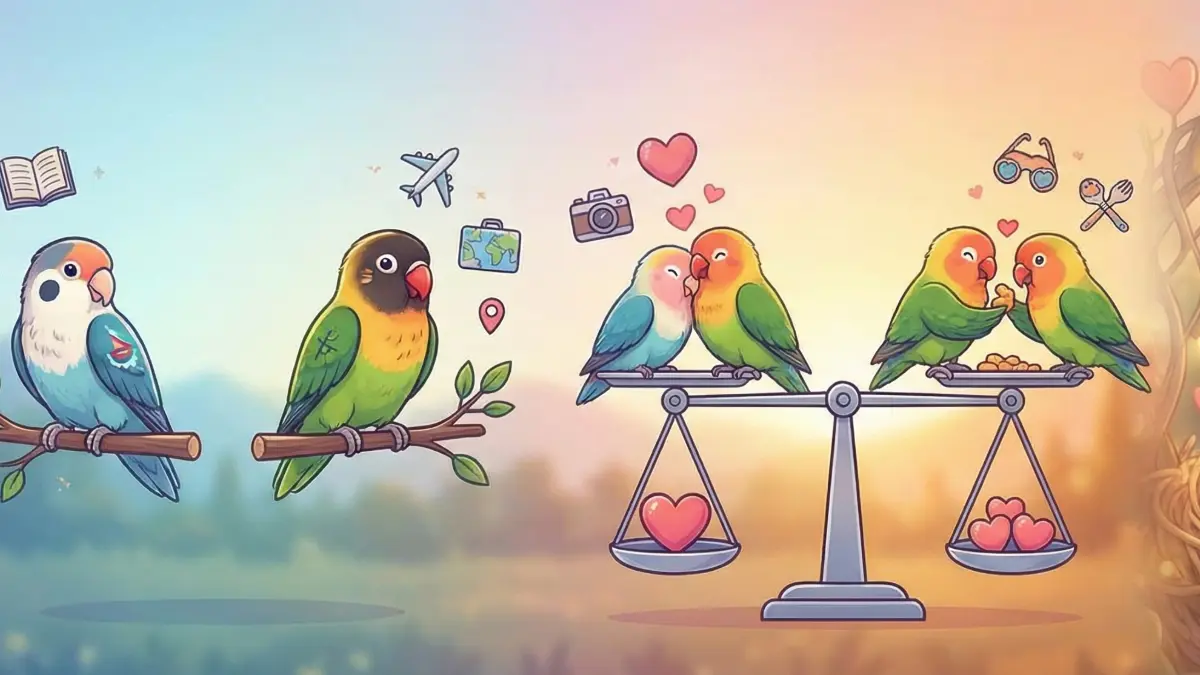This scientifically validated assessment measures the depth of affection, trust, and mutual support in your romantic partnership.

Lovebird Scale
Is your romance flourishing? Find out now.
The Lovebird Scale, developed by researchers Sara Cloonan, Lara Ault, Karen L. Weihs, and Richard D. Lane, is designed to assess the core components of a "lovebird relationship"—one characterized by deep affection, mutual trust, and responsiveness. Unlike simple compatibility quizzes, this assessment looks at the specific behaviors and feelings that keep romance alive and thriving, from emotional closeness to the shared goals that build a long-lasting foundation.
By responding to straightforward yet meaningful statements, you can gain valuable insight into the health of your partnership. The results serve as a mirror, reflecting how well you and your partner support each other's aspirations and savor life's moments together. Whether you are in a new relationship or a long-term marriage, understanding these dynamics is crucial for maintaining a strong bond, much like the insights gained from our Relationship Satisfaction Scale.
This tool is not just for assessment; it is a conversation starter. Use your results to celebrate your strengths and identify areas where you can nurture a deeper connection. Emotional intimacy is a journey, and taking this test is a proactive step toward a more fulfilling love life. If you are interested in exploring how real you feel in your partnership, you might also consider taking our Authenticity in Relationships Scale next.
Frequently Asked Questions
- How long does this quiz take?
- It takes about 5-7 minutes to complete.
- Are my responses private?
- Yes, all Lovebird Scale answers are anonymized and confidential.
- Can I take this test more than once?
- Yes, you can retake the test any time to see how your Lovebird Scale results may have changed.
- Will this quiz tell me if I should break up?
- No, this assessment is designed to highlight strengths and areas for growth in your relationship, not to make major life decisions for you.
- Can my results help improve my relationship?
- Yes, the results can serve as a great conversation starter to discuss needs, trust, and how to better support each other's goals.
Lovebird Scale: Take The 18-Item Quiz
References
Disclaimer
This scale is designed for educational purposes and is not a substitute for professional diagnosis or treatment.

